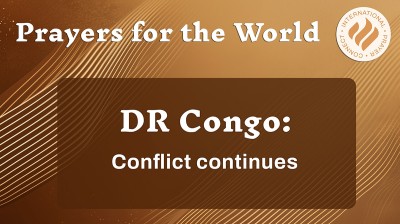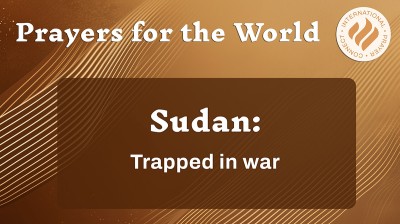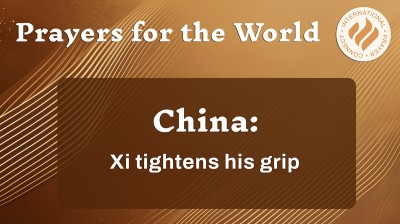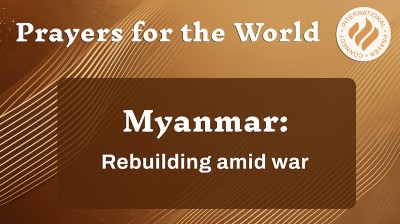In eastern DR Congo, violence continues to cast a shadow over ongoing peace initiatives. Human Rights Watch reports that M23 rebels killed at least 140 civilians in July, including women and children, during one of the deadliest attacks since the group’s resurgence in 2021. Witnesses described harrowing scenes of machete and gun attacks across 14 villages near Virunga National Park. Some families were forced to bury their loved ones immediately, while others saw bodies thrown into rivers. Many victims were reportedly from the Hutu ethnic group, and the UN corroborates claims of wider killings potentially exceeding 300 during the same period.
Despite the ongoing peace process brokered by the US and Qatar, the M23 continues to challenge stability, with violations of ceasefire agreements reported. Both local communities and international observers have called for accountability, urging the UN and global actors to press for justice and impose sanctions where necessary. Rwanda has denied involvement in the attacks, asserting that M23 operates independently and pointing to concerns about the armed Hutu group FDLR.
Amidst the violence, diplomatic efforts continue. On September 3, the DR Congo and Rwanda reaffirmed their commitment to the June 2025 Peace Agreement during the second Joint Oversight Committee meeting. Representatives from the US, Qatar, Togo, and the African Union participated, addressing implementation delays and recent unrest. Steps highlighted included establishing a single independent joint secretariat to coordinate regional support, mechanisms for voluntary refugee returns, and a military and intelligence channel for sharing critical security information. Both governments committed to ceasing support for non-state armed groups and accelerating efforts to neutralize the FDLR.
Peace talks with M23 in Doha remain critical, though negotiations face challenges. The committee emphasized regular follow-ups to monitor progress, underscoring the shared responsibility of regional and international partners to uphold stability and protect civilians.
Prayer Pointers
- Pray: Protection for civilians and God’s safeguarding over families and communities affected by violence. “He will cover you with his feathers, and under his wings you will find refuge; his faithfulness will be your shield and rampart.” Psalm 91:4
- Pray: for the leaders and international bodies to act wisely, ensuring perpetrators are held responsible. “Learn to do right; seek justice. Defend the oppressed… “Isaiah 1:17
- Pray: the peace agreements to be fully implemented, and for hearts to be softened toward forgiveness and collaboration. “If it is possible, as far as it depends on you, live at peace with everyone.” Romans 12:18
Prayer – Lifting up communities
Father, we lift the people of eastern DR Congo and Rwanda to You. Protect families from harm, guide leaders with wisdom, and bring lasting peace and reconciliation to the region. Amen.
More: https://www.bbc.com/news/articles/c8x5y2zvzk0o and http://web.sabc.co.za/sabc/home/channelafrica/news/details?id=2ccaa30b-e8e7-4fc1-acd9-153c3990df79&title=DRC
Sudan’s civil war continues to produce one of the world’s most severe humanitarian crises as fighting enters its third year. The conflict between the Sudanese Armed Forces (SAF) and the Rapid Support Forces (RSF) has left tens of thousands dead from combat, disease, and hunger, while millions have been displaced. Families struggle to survive amid the chaos, with children suffering the brunt of malnutrition and preventable illnesses.
In August, the SAF consolidated control over Khartoum and central and eastern regions, including the strategic port city of Port Sudan. The RSF, in turn, dominates much of Darfur and southern Kordofan and has allied with the Sudan People’s Liberation Movement-North (SPLM-N) to expand influence. RSF attacks on North Darfur’s capital, el-Fasher, threaten the city’s last SAF garrison and have trapped approximately 260,000 civilians, including 130,000 children. Satellite imagery shows sand berms encircling the city, creating a “kill-box” effect, with civilians caught in crossfire and with limited avenues for escape.
Many families survive on minimal food sources such as ambaz, a paste made from pressed oil seeds, yet supplies are dwindling. In Mellit, one-third of children are severely malnourished, reaching emergency thresholds defined by the World Health Organization. Cholera outbreaks in Darfur have claimed hundreds of lives and infected over 9,000, compounding the humanitarian crisis. Aid convoys from the United Nations and NGOs rarely reach affected areas due to roadblocks, attacks, and bureaucratic delays, including a recent drone strike on a UN convoy in North Darfur. South Kordofan faces similar hunger crises due to RSF sieges on Dilling and Kadugli.
Politically, RSF leader Mohamed Hamdan “Hemedti” Dagalo was sworn in as president of a parallel “Peace government” in Nyala, South Darfur, coinciding with SAF drone strikes on the city. Reports suggest secret discussions in Switzerland between SAF Commander-in-Chief Abdel Fattah al-Burhan and a US adviser to explore pathways to peace, followed by the retirement of senior officers linked to Sudan’s former Islamist government.
Civilians remain at extreme risk as the war continues. The international community is being urged to intensify humanitarian aid, press for accountability, and ensure that ceasefires are implemented to protect those trapped in conflict zones.
Prayer Pointers
- Pray: for God’s safeguarding over families trapped in conflict zones, that children and vulnerable communities would find refuge and safety. “The Lord will keep you from all harm—he will watch over your life.” Psalm 121:7
- Pray: and ask the Lord to bring peace to Sudan for God to soften hardened hearts, ending cycles of revenge and hatred.
- Pray: for the Church in Sudan for the to remain steadfast, bringing hope and comfort to those in despair.
Prayer – for Sudan’s Children and Families
Lord, we lift up the people of Kordofan. Protect the innocent, comfort the grieving, and bring an end to bloodshed. Raise Your Church to shine as a beacon of hope, and let Your peace touch this broken land. Amen
More: https://www.aljazeera.com/news/2025/8/31/sudan-august-update
Iranian state media has accused at least 54 Christians of espionage, claiming that their religious activities abroad and possession of Bibles constitute “anti-security” behaviour. The broadcast included footage of Bibles being transported into the country, images of gatherings, and coerced confessions of some detainees, creating the impression of a faith community aligned with foreign intelligence.
These accusations were aired before any trial, raising serious concerns about due process and the right to a fair defence. The state’s narrative risks framing everyday Christian practices including prayer, worship, baptisms, and possession of Scripture, as criminal acts. Presenting evangelical believers as traitors fuels societal hostility and deepens the persecution of Persian-speaking Christians in Iran.
Open worship remains severely restricted in the country, forcing many to meet in secret. Despite these pressures, believers continue to gather quietly, sharing faith and Scripture under immense personal risk. Observers note that this escalation is consistent with Iran’s ongoing pattern of monitoring and suppressing Christian activity, highlighting the need for international attention and support.
The World Watch List ranks Iran as the ninth most challenging country for Christians, reflecting the heightened risks of imprisonment, interrogation, and harassment faced by those practicing their faith openly. Human rights groups emphasize that the allegations of espionage are unfounded and serve as a pretext for suppressing religious freedom.
The global church is called to stand in solidarity with these believers—praying for protection, courage, and endurance. Advocacy for due process, freedom to worship, and international pressure to uphold human rights are critical in supporting Christians under persecution in Iran. The situation underscores the ongoing need for awareness and prayer, as well as practical support for families and house churches navigating life under constant threat.
Prayer Pointers
- Pray: for God’s safeguarding over Christians facing imprisonment and false accusations. “The angel of the Lord encamps around those who fear him, and he delivers them.” Psalm 34:7
- Pray: for courage, endurance, unwavering faith and strength for those meeting secretly to worship. "Have I not commanded you? Be strong and courageous. Do not be afraid; do not be discouraged, for the Lord your God will be with you wherever you go.” Joshua 1:9
- Pray: that authorities uphold truth and justice, and that the global community champions religious freedom. “When justice is done, it brings joy to the righteous but terror to evildoers.” Proverbs 21:15
Praying - Strength for the faithful in Iran
Lord, protect Your children in Iran. Give them courage, endurance, and peace as they practice their faith in the face of threats. Amen.
More: https://www.opendoorsuk.org/news/latest-news/iran-christian-spies/
Beijing has been showcasing its growing arsenal with a massive military parade led by Xi Jinping, displaying hypersonic missiles, stealth jets, and underwater drones. With Vladimir Putin and more than 20 world leaders in attendance, the event highlights China’s ambition to rival U.S. military power by mid-century.
But behind the polished display lies unease. Over the past two years, more than two dozen senior officers and defence industry executives have vanished from public life in what is widely seen as Xi’s most sweeping military purge yet. The move reflects concerns about corruption, loyalty, and the readiness of the People’s Liberation Army (PLA). Experts warn that endemic graft threatens China’s ability to carry out a potential invasion of Taiwan, something Xi has ordered the PLA to be prepared for by 2027.
Since taking power in 2012, Xi has relentlessly reshaped the military. He invoked Mao’s principle that “the party commands the gun,” dismantled patronage networks, and emphasized absolute loyalty to his leadership. Under his watch, China has built the world’s largest navy, quadrupled its nuclear stockpile, and made significant advances in missile and aircraft technology. Once reliant on outdated Russian designs, Beijing now develops cutting-edge weapons of its own.
Xi frames these reforms as essential to achieving his “China Dream” - a vision of national rejuvenation that includes reclaiming Taiwan and standing shoulder to shoulder with the United States as a global power. For Xi, military strength underpins not only China’s external ambitions but also the Communist Party’s internal legitimacy amid slowing economic growth.
The purge underscores both his consolidation of power and his determination to ensure the PLA is loyal, disciplined, and capable of “fighting and winning wars.” Analysts say this is not a sign of weakness but of Xi’s confidence, as he enters the next phase of military modernization.
For the U.S. and its allies, the challenge is clear: China is rapidly closing the gap, and its reforms make the PLA a formidable adversary. The parade may be a display of might, but the ongoing anti-corruption drive reveals a deeper truth - Xi’s iron grip on the military is central to his quest for dominance at home and abroad.
Prayer pointers
- Pray: for truth and justice to prevail in China’s military ranks. “Whoever walks in integrity walks securely, but whoever takes crooked paths will be found out.” Proverbs 10:9
- Pray: ask the Lord to restrain conflict and turn ambitions away from destruction. “He makes wars cease to the ends of the earth. He breaks the bow and shatters the spear; he burns the shields with fire.” Psalm 46:9
- Pray: for ordinary citizens to find security, stability, and ultimately, the knowledge of Christ. “Also, seek the peace and prosperity of the city to which I have carried you into exile. Pray to the Lord for it, because if it prospers, you too will prosper.” (Jeremiah 29:7)
Prayer for China’s military and leaders
Lord, we ask that You expose corruption, restrain aggression, and guide China’s leaders toward peace instead of pride and conflict. Amen.
More: https://www.washingtonpost.com/world/2025/09/02/china-xi-jinping-military-purge/
Myanmar continues to struggle with recovery from the devastating 7.7-magnitude earthquake in March, which claimed more than 3,800 lives, even as civil war persists between the military-led government (Tatmadaw) and pro-democracy forces. The disaster compounded an already dire humanitarian situation: prior to the quake, over 3.5 million people were displaced, and roughly 20 million required assistance due to ongoing conflict.
In the hardest-hit areas, recovery is painstakingly slow. Workers like seamstress Thae Mama Swe comb through rubble in search of missing loved ones, while engineers attempt to restore roads, bridges, hospitals, schools, and other critical infrastructure. In Mandalay and the capital, Naypyitaw, crews repair damaged government buildings, including the main parliament, aiming to prepare for elections scheduled in December. However, critics question the legitimacy of these elections under military rule.
Military airstrikes and attacks continue despite a temporary ceasefire, further delaying aid deliveries. Insurgents also remain active, complicating efforts to reach those in need. Temporary bridges and manual road repairs illustrate the immense challenge of rebuilding in conflict zones. Hospitals, pagodas, homes, and other vital structures were destroyed, and the country faces shortages of supplies, equipment, and experienced personnel.
International assistance is limited. Western sanctions and cuts to aid, combined with reliance on China and Russia for trade, have restricted Myanmar’s ability to rebuild. U.N. officials stress that the military must allow humanitarian access and halt attacks on civilians to prevent further suffering. Despite these obstacles, officials and citizens remain committed to restoring vital services and hope to construct earthquake-resilient buildings to protect future generations.
The ongoing civil war has slowed reconstruction, but recovery efforts continue. Amid grief, loss, and widespread destruction, Myanmar’s people display resilience and determination, striving to rebuild lives while navigating the dual crises of natural disaster and armed conflict.
Prayer Pointers:
- Pray: for God’s safeguarding over families and communities facing ongoing violence and disaster. "He will cover you with his feathers, and under his wings you will find refuge; his faithfulness will be your shield and rampart." Psalm 91:4
- Pray: for essential resources, humanitarian access, and skilled help to reach affected areas efficiently. "And my God will meet all your needs according to the riches of his glory in Christ Jesus." Philippians 4:19
- Pray: for the reconstruction of homes, schools, hospitals, and infrastructure, and for wisdom in creating resilient communities. “Let us rise up and build.” Nehemiah 2:18
Prayer - Standing with Myanmar
Lord, be the refuge and strength for all affected in Myanmar. Bring comfort to those grieving and strength to those rebuilding. Restore lives, protect the vulnerable, and bring peace amid conflict. Amen.
More: https://abcnews.go.com/International/wireStory/ap-visit-myanmar-highlights-struggle-rebuild-after-earthquake-125244807
By Tom Victor
September 5th marked the U.S. and Canada Premiere of the new movie - Light of the World.
It is a beautifully hand-drawn animated film that follows Jesus’ life through the eyes of young John, powerfully sharing the Gospel message of love, hope, and salvation with children and families worldwide.
It is scheduled for release in 30 more nations before the end of 2025. The film will be translated into 500+ languages.
The film’s makers' vision is for the movie to nurture new and existing believers through free Gospel discipleship materials. A Gospel invitation and QR code are displayed on screen at the end of the film to encourage people to respond.
The IPC and 2BC families have been praying for the success of this remarkable film and for many children and adults across the world to be reached with its Gospel message.
Who is behind Light of the World?
The Salvation Poem Project has created Light of the World. Perhaps you’ve heard of them as the Salvation Poem is at the end of every Superbook episode and is available in almost 100 languages.
2BC and Shine!
 ‘Rise, shine, for your light has come, and the glory of the Lord rises upon you.’ (Isaiah 60:1)
‘Rise, shine, for your light has come, and the glory of the Lord rises upon you.’ (Isaiah 60:1)
On Tuesday, August 19, children from 20 nations took turns leading our first 24 hours of “on-line” prayer in our 2BC Prayer Room. Many others joined them “off-line” as well. They were part of the newly established Shine Project.
The vision of Shine! is to be praying for children (and adults) to know Jesus, boldly share His love, and for the Light of the World movie to impact families and nations with the Gospel. Watch the Trailer!
The first Shine 24 hour event was so successful that due to popular demand, we are holding a second one! -
Shine! – 24 Hours of Prayer for the Light of the World’
September 23, 2025
Starts: 00:00 EST | 06:00 CEST | 12:00HRS SGT
Shine! is a 24-hour global celebration of Jesus, hosted by children, families, churches and ministries across every continent. We’re lifting up the name of Jesus and praying for the success of the upcoming “Light of the World” movie – a powerful Gospel film being translated into hundreds of languages.
Continuous online Zoom sessions and offline local gatherings will blend worship, intercession, creativity and child-led passion. Children will pray boldly, worship joyfully, and share Jesus faithfully!
You can join an hour online or lead your own gathering at home or church using our free Shine! Small Group Pack. Let’s raise a wave of worship and intercession that covers the earth - through the voices of the next generation!
Why is our 2BC Family partnering with this movie?
2BC has three core values. 1) Children Hearing the Voice of their Heavenly Father; 2) Children Knowing their Identity in Christ; 3) Children Empowered by God’s Spirit to Share His Love with Others. Light of the World is a powerful resource to help children – both the little ones and the older ones - become 2BC Champions as they discover their identity and share the message of God’s love with others in their neighborhood and around the world.
The Shine Project has created several free resources to help children Shine! as 2BC Champions in support of this movie, including a Prayer Guide, B.L.E.S.S. Cards, God’s Favorite and Shine Songs. There are some exclusive Light of the World resources launching this week too!
You can find them all at: https://www.2bc.world/shine/

Is the Shine Project for me?
You can only qualify for the Shine Project if:
- You are a child;
- You love children;
- You were a child at some time in your life.
If any of these apply, Light of the World and the Shine Project is for You!!! Check it out!
Here’s a music video by Shane and Shane with movie segments that can help you decide:
More info, Resources and Sign-up
www.2bc.world/shine
2BC: Every Child - Everywhere - On Mission - With God!
"A powerful, global perspective of prayer around the world."
“amazing, important, relevant, timely.”
“the cinematography in this film is outstanding”
"more than a documentary..."
The Church was born in a ten day prayer meeting
In Acts chapter one, 120 of the earliest disciples came together in an Upper Room in Jerusalem, devoting themselves constantly to united prayer. After ten days, on the day of Pentecost, the Holy Spirit was poured out.
Miracles, salvation, persecution, generosity, and unusual love and unity: these were the hallmarks of the early church. However, for many Christians, their experience of God today looks nothing like the book of Acts.
10 Days is a feature-length documentary on a global prayer movement based on the Acts 1 prayer meeting, a gathering that takes place simultaneously in hundreds of locations during the ten "Days of Awe" each year. It tells the stories of everyday believers in Pakistan, India, Israel, Uganda, and the United States who are praying like the early church.
What happens when people take vacation time to pray and seek God?
Could it really be that when people pray like the book of Acts, things still happen?
Can extraordinary prayer still change the world?
It's time to see and believe what is possible when ordinary people pray in an extraordinary way.
From September 5-22, we are offering a special pre-release of 10 Days, the new feature-length documentary on the global impacts of extraordinary prayer. After this brief window, the film will be unavailable again until its full release in early 2026.
What is 10 Days?
10 Days is a prayer movement that is observed annually in hundreds of locations around the world. It’s based on the “upper room” prayer meeting described in the book of Acts, chapter 1 – a time of extraordinary prayer that spans 240 hours. (More follows below)
Where can we watch the pre-release?
After signing up to host a Watch Party, an email will be sent with a link to view the film, which will be available from September 5 to 22.
More Info and Register: https://www.10daysfilm.com/

10 DAYS of AWE: JOIN THE GLOBAL UPPER ROOM - Sept. 22 - Oct. 2 2025
10 Days is a global, city-wide season of consecration - ten full days (Sept 22–Oct 2 in 2025) set aside for worship, prayer, fasting, repentance, and unity under the banner of Jesus Christ 10 Days of Prayer+1.
Born from a visionary call in 2004 centered on Jesus’ prayer in John 17 for unity - and inspired by the “Days of Awe” between Trumpets and Atonement - 10 Days invites entire cities and regions to “stop” their usual rhythms and enter into an atmosphere akin to the biblical “upper room” (Acts 1-2) and the city of Nineveh’s repentance. Read More about 10 Days
Organized locally by city coordinators working across congregations and networks, events can take many forms - hub-city gatherings, multi-site expressions, small groups, virtual rooms - all aiming to create a “global upper room” for transformation, revival, and the return of Jesus.
Every year on 30th September, Christians around the world pause to celebrate Bible Day - a vision first launched in 1966 by Wycliffe’s founder, William Cameron Townsend. This is more than a date on the calendar: it’s a powerful reminder of what God has done - and continues to do - through the translation of His Word into the languages of the nations.
When people encounter Scripture in their heart language, lives are transformed. Communities discover their worth, cultures are affirmed, and millions are meeting Jesus in a deeply personal way. Yet the task is not finished. Around 600 languages - representing nearly one billion people - still have no access to the Bible.
That’s why we’re praying and working together for the bold and urgent vision: Zero people without the Bible by 2033 - the 2,000th anniversary of the resurrection of Jesus.
This year, on Tuesday 30 September 2025, 6am-8am Pacific Time, you are invited by IPC, Pray for Zero and World Prays to join a global online celebration and prayer gathering. This two-hour livestream will bring the worldwide Church together for worship, all-age prayer, and inspirational stories. You’ll hear from international leaders across the Bible translation movement, and from ordinary believers whose lives have been changed by reading God’s Word in their own tongue.
We will pause to give thanks for the tremendous progress already made in recent decades, while also interceding for a fresh acceleration so that every people group can hold the Scriptures in their hands. As Ephesians 6:18 reminds us, we are called to “pray in the Spirit on all occasions with all kinds of prayers and requests.”
This is more than an event - it’s a historic moment for the Body of Christ to stand united, sowing seeds of prayer that will bear eternal fruit. Now is the time for believers of every age and background to rise up together, lifting their voices for the advancement of God’s Word.
 Will you take your place? Join us this Bible Day as we worship, pray, and believe God for a generation where everyone can encounter Jesus through the Scriptures in their heart language.
Will you take your place? Join us this Bible Day as we worship, pray, and believe God for a generation where everyone can encounter Jesus through the Scriptures in their heart language.
More Info and Join us online HERE!
See also:
www.prayforzero.com







